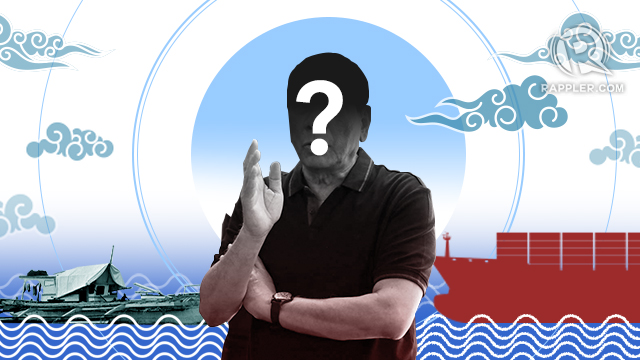

Even while betraying the country, the Duterte government could not get its act together.
Last June 12, on Independence Day, we learned from Defense Secretary Delfin Lorenzana that a Chinese vessel rammed and partially sank a Philippine fishing boat near midnight of June 9.
Worse, they left the Filipino crew stranded in open sea. Hours later, thankfully, Vietnamese fishermen came to help.
Just as frustrating as this act of aggression are the government’s chaotic statements and dovish stance on it. The otherwise simple series of events also got wildly spun not just by the Chinese government but also by our very own.
To wit, the Chinese embassy originally said that the Chinese vessel was “besieged by 7 or 8 Filipino fishing boats” – even if the fishermen’s testimonies and satellite imagery belied such claim.
Meanwhile, since Defense Secretary Delfin Lorenzana’s original statement, it took a full 5 days for President Rodrigo Duterte to publicly say anything about the incident.
When he finally did, he simply dismissed it as a “little maritime accident” – eerily echoing the Chinese foreign ministry’s claim it was “an ordinary maritime traffic accident.”
There’s a lot more to be said about the government’s woeful handling of this crisis.
But in this article let’s focus on the economic impact of China’s increasing aggressions in our fishing industry. Aggressions like this will, sad to say, only serve to worsen the already sorry plight of our fisherfolk.
More than ever, we need President Duterte’s touted “tapang at malasakit” (courage and compassion). But where is it?
Poor and vulnerable
Data consistently show that Filipino fisherfolk are some of the poorest people in our economy.
Despite a reduction in poverty incidence from 2006, about one in 3 fishermen is still considered poor as of 2015 (Figure 1).
Figure 1
A recent study by the Philippine Institute for Development Studies also found that fisherfolk are among the most economically “vulnerable”; that is, likely to fall into poverty in the future.
In 2015, a third of fishermen were deemed “highly vulnerable” while more than half were “relatively vulnerable” (Figure 2).
Figure 2
Vulnerability in the fishing industry comes from many fronts, most notably overfishing. Open access to fishing grounds induces fisherfolk to capture as many fish as they could, thus depleting fish stocks rapidly.
This so-called “tragedy of the commons” stems from ill-crafted and poorly-enforced fishing laws and regulations.
For example, catching young fish is bafflingly not prohibited by our laws. Unsafe and pernicious methods like cyanide fishing also often go unpunished because government spends relatively meager resources on maritime law enforcement.
Unless government abates overfishing soon, more and more Filipino fishermen will resort to bad fishing methods and head out to farther fishing grounds like the West Philippine Sea just to haul a good catch.
Overfishing therefore puts our fishermen directly into the path of the Chinese navy and militia now encroaching our territories and exploiting our natural resources in the West Philippine Sea, particularly in areas like Panatag Shoal or Reed Bank.
This might only compound our fishermen’s poverty and vulnerability.
China vs Filipino fishermen
The June 9 incident is the worst aggression of what is believed by some to be the Chinese militia against a Filipino vessel.
Yet it is by no means unique. Between 2014 and 2018, China also rammed Vietnamese vessels at least a dozen times, often near the Paracel Islands.
Past aggressions against our fishermen, however, helped us win our case against China in the arbitral tribunal in The Hague.
As expounded in the book Rock Solid by Rappler’s editor-at-large Marites Vitug, fishermen from Masinloc, Zambales and Infanta, Pangasinan testified that Panatag Shoal, found off the coast of Zambales, has been a traditional fishing ground for their families for several decades.
But since April 2012 they were routinely expelled and denied access there by the Chinese Coast Guard, who sometimes even fired water cannons at them. In that same year, China also unilaterally and illegally imposed a fishing ban across a huge swathe of the West Philippine Sea. They expanded such ban in 2015.
The Chinese have since dealt catastrophic, incalculable, and permanent damage to the natural resources and the marine ecosystems in the West Philippine Sea.
For instance, they have routinely used blast fishing to harvest giant clams and sea turtles.
They also dredged – and continue to dredge – coral reefs to construct artificial islands on our reefs. What nature took millennia – even millions of years – to build, the Chinese undid in just a couple of years.
According to a previous director of the Bureau of Fisheries and Aquatic Resources, China’s incursions have caused “a deep sense of fear among Filipino fishermen” and “significantly curtailed their fishing activities and severely impacted their ability to earn a livelihood.”
Coincidentally, the total volume of marine municipal fishing production dropped by 11.2% from 2012 to 2017. The value of such output, meanwhile, grew by a measly 0.2%.
Sure, these aggregate changes may be due to factors other than Chinese aggressions. But for many Filipino fishermen forced out of their traditional fishing grounds, China’s aggressions have invariably depressed their livelihoods and incomes.
Some fishermen in Zambales were forced to take on land-based jobs like being security guards. Others were forced to retire early.
When China attacked the fishing boat Gem-Ver on June 9, the Filipino crew was already heading home with a harvest of about 3 metric tons of fish.
But after their vessel sank, their catch – amounting to P1 million – went bad and got wasted. Along with boat repairs and lost supplies, the total damage to the owner and crew of Gem-Ver totaled P2.2 million.
For workers at the fringes of our economy, that loss is simply catastrophic.
Neither tapang nor malasakit
On June 19, Agriculture Secretary Manny Piñol went to Occidental Mindoro to give 22 fiberglass boats and other fishing implements to the embattled Filipino fishing crew.
Presumably this is the government’s way of commiserating with the fishermen and helping them get back on their feet after their life-threatening ordeal.
But unless the Duterte government strongly condemns this and other acts of Chinese aggression, invokes the favorable arbitral tribunal ruling, and permanently wards off the Chinese navy and militia from our waters, these 22 boats will do little to improve the plight of our fisherfolk. In fact, it might only give the Chinese more boats to ram and sink.
During photo ops, Secretary Manny Piñol made the fishermen do the signature Duterte fist pump.
I find this, above everything else, hypocritical. The fist pump is meant to evoke Duterte’s famed “tapang at malasakit” (courage and compassion), his supposed traits that catapulted him to the presidency in 2016.
Alas, Duterte’s recent behavior betrays the fact he has neither of them. – Rappler.com
The author is a PhD candidate at the UP School of Economics. His views are independent of the views of his affiliations. Follow JC on Twitter (@jcpunongbayan) and Usapang Econ (usapangecon.com).